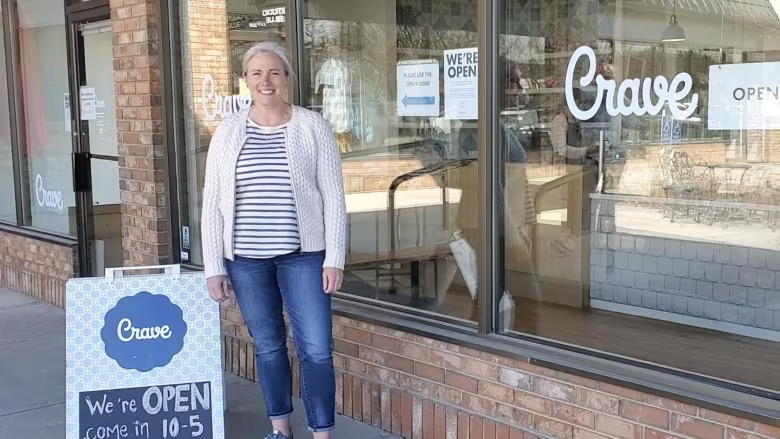After struggling to hire bakers for her Calgary-based cupcake business, Jodi Willoughby decided to pursue bringing a temporary foreign worker to her production facility.
Willoughby, who co-owns Crave Cupcakes, which also has locations in Edmonton and Saskatoon, said finding local staff became harder in the last few years.
“People who really loved what they were doing left the industry in their pursuit of something that was maybe more unaffected by things like COVID,” she told CBC News.
Like many employers across the country, Willoughby applied through an immigration company for a labour market impact assessment — a federal document that shows no Canadian worker or permanent resident is available to do a certain job. It’s the first step toward hiring a temporary foreign worker (TFW).
Her application was part of a surge this year from employers in Western Canada.
According to statistics provided by Employment and Social Development Canada, as of Nov. 5, the number of LMIA applications created has increased 39 per cent nationwide, compared to the same time period last year.
In Western Canada, the increase was even higher at 83 per cent. Yukon was the only province or territory to see a slight application decrease this year.
Willoughby had her LMIA approved, interviewed candidates and offered the job to a worker from India, but that worker still needs a work permit from the federal government.
Long waits for workers
Willoughby said the process of hiring a worker from outside the country has taken longer than she expected. She had hoped her new employee would start in September, and when that wasn’t likely, by Christmas.
“I’m not even setting any expectations for myself anymore,” she said.
Willoughby isn’t the only employer waiting.
Matt Penney, co-founder and vice-president of business development at Recruit Without Borders, said LMIA processing for Alberta clients has been particularly sluggish, taking longer than the 45-day average his company is seeing for employers applying in other provinces.
“We had a lot of employers reach out to their local MLAs to follow up on the process,” he said.
Data from the federal government shows that Alberta does have the longest average LMIA processing time in the country, but a spokesperson said that’s because the province has a smaller share of applications in priority processing streams.
Only four per cent of LMIA applications in Alberta are in the agriculture and seasonal agricultural worker program streams, compared to 11 per cent for Ontario and 18 per cent for Quebec.
“As a result, the average processing time for Alberta is higher than for provinces with a greater share of priority-stream files,” Maja Stefanovska, a spokesperson for Employment and Social Development Canada, said in an emailed statement.
Rowan Fisher, a lawyer with Fisher Law in Calgary, said delays in bringing TFWs to Canada have persisted since the pandemic, but she and her colleagues have not seen Alberta as an outlier.
“Everyone wants the process to go quicker and businesses lose money if they don’t get their people on the ground when they need them,” she said.
She said advanced planning is important and she warns clients about the delays.
Federal efforts to speed up applications
Stefanovska said the TFW program has launched a number of modernization initiatives since last year.
Files are now being distributed across the entire national network, which allows applications from high-demand provinces like Alberta to be processed elsewhere, she said.
The program also has been moving away from paper applications, which reduces data-entry work for Service Canada.
- Project to cut red tape for migrant worker employer to launch next month
- Winnipeg man fined $20K in immigration fraud case
The new Recognized Employer Pilot, which was announced in August, simplifies the application process for repeat employers who have followed the program’s rules.
Concerns about program
Danilo De Leon, chair of Migrante Canada, expressed concerns about the increasing interest in the TFW program.
De Leon, who is based in Edmonton but advocates for migrants’ rights across the country, said because TFWs’ work permits are tied to one employer, that makes them vulnerable to abuse and unfair labour practices.
He said the program should be reviewed, and his organization has been campaigning for it to include an open work permit instead of a closed one.
“Then they can go find another employer and quit their job,” he said.
Federal rules allow workers who are being abused or at risk of being abused to apply for an open work permit, but De Leon said workers aren’t always informed of their labour rights and fear speaking up in case they lose their jobs.

